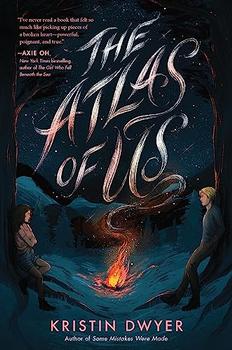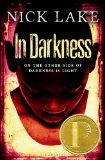Summary | Excerpt | Reviews | Beyond the book | Read-Alikes | Genres & Themes | Author Bio

Tommy Wallach is a young writer who's not afraid to tackle big issues of life and death. His debut novel, We All Looked Up, focused on a group of teenagers doing normal teenage things while confronting their own mortality, in the form of an asteroid hurtling toward Earth. Now, in Thanks for the Trouble, Wallach offers another thoughtful novel that deals with issues of (im)mortality, loss, and change, all tinted with humor and a hint of magic.
Parker Santé is a senior in high school, but he would be the first to admit that he's not exactly Ivy League material. Ever since the death of his writer father several years earlier, Parker has lived on the fringes of his own life. He is physically unable to speak despite years of therapy, he feels detached from his grieving, alcoholic mother, and he's gotten into trouble more than once for fighting and stealing things.
It's while he's in the process of his next theft, however, that he encounters a girl who's about to change everything for him. Zelda is strikingly lovely, with unexpected silver hair and a way of talking that makes her seem older than she appears. Parker is intent on stealing the wad of cash she uses to pay for her coffee at the Palace Hotel – but before he can do so, she engages him in an intriguing conversation (Parker writes his contributions in the notebook he carries everywhere) during which she confesses that she's only biding time until she plans to kill herself by jumping off the Golden Gate Bridge. Before their coffee cups are emptied, the two make a deal – if Parker promises to change his mind and apply for college, Zelda won't kill herself… at least not yet.
Starting on Halloween and extending for about the next 48 hours, Thanks for the Trouble explores how Parker's unexpected encounter with Zelda, and her fearless willingness to tell the truth no matter how uncomfortable it is, allows him to open his eyes to a world he's been largely blind to since his father died. "Where have you been, Parker?" she asks him at one point. "How have you managed to hide out right in the middle of your own life?"
Structured as Parker's (60,209 words too long) college application essay, punctuated by Parker's clever and thematically rich fairy tales, the novel not only examines Parker's retreat from and rapid reentry into real life, it also continually questions who Zelda is, whether she's telling the truth about her past, and if it even really matters in the end. Readers, like Parker himself, will be second-guessing Zelda's stories and motivation right up until the last page, wondering if she's really magic… or if she's real at all. In the end, though, what matters is Parker's realization that "maybe the closest thing we mortals get to magic is just change." His whirlwind time with Zelda is full of changes and surprises – but perhaps what matters most of all is his willingness to embrace the kinds of changes, for better and for worse, that denote the passing of time and that make us fully human.
![]() This review was originally published in The BookBrowse Review in March 2016, and has been updated for the
June 2017 edition.
Click here to go to this issue.
This review was originally published in The BookBrowse Review in March 2016, and has been updated for the
June 2017 edition.
Click here to go to this issue.

If you liked Thanks for the Trouble, try these:

by Kristin Dwyer
Published 2024
"A complete knockout. Readers will be thinking of this story long after they finish the final page." —Adalyn Grace, New York Times bestselling author of Belladonna

by Nick Lake
Published 2014
Raw, harrowing, and peopled with vibrant characters, In Darkness is an extraordinary book about the cruelties of man and nature, and the valiant, ongoing struggle for a country's very survival.
I find that a great part of the information I have was acquired by looking something up and finding something else ...
Click Here to find out who said this, as well as discovering other famous literary quotes!
Your guide toexceptional books
BookBrowse seeks out and recommends the best in contemporary fiction and nonfiction—books that not only engage and entertain but also deepen our understanding of ourselves and the world around us.